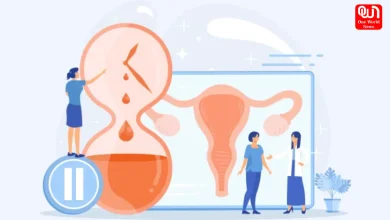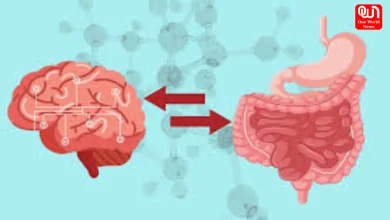Chewing for weight loss: How many times should you chew your food for shedding kilos
A minimum of 40 chews of your food before swallowing can greatly help in weight loss.
Chewing for weight loss: How many times should you chew your food for shedding kilos
R Madhavan recently surprised his admirers with his incredible weight loss makeover, which included long morning walks, irregular fasting, intense chewing of food, and an early dinner. He lost those excess pounds without going to the gym or going for runs. The science underlying chewing’s involvement in weight loss has captivated his devotees.R Madhavan recently astounded his followers with his incredible weight loss makeover, which included intense chewing of food, sporadic fasting, early dinner, and long morning walks. He lost those excess pounds without going to the gym or going for runs. The science underlying chewing’s involvement in weight loss has captivated his devotees.

Read more –Unlocking the Benefits: Why You must have a Fish Oil Diet
Just as it is helpful to chew the cud with others, it is equally useful to chew your food when gulping it down to digest it as it aids burning of calories in different angles. Apparently, chomping your food until your meal is reduced to a clear soup yields additional calories burn during digestion of about 10 calories for a 300 – calorie meal as the journal Obesity pointed out.
According to this study, chewing improves nutrient absorption because the process of breaking food down into small pieces aids the stomach’s digestive secretions in further reducing it to minuscule size. This facilitates improved hydration and nutrient absorption. Additionally, chewing helps increase blood flow to the stomach and intestines. On the other hand, eating more quickly has little effect on burning calories. Ayurveda says that eating with awareness, meaning to savor each bite and use all of your senses, helps improve digestion and foster a closer relationship with your food.
Read more –5 Foods Never to Pair with Your Tea: Unhealthy Food Combinations to Avoid
It’s crucial to chew meals thoroughly and slowly. Indigestion and stomach problems might result from eating quickly. Few studies suggest that chewing on hard foods should be done at least thirty times, whereas chewing on soft foods should only be done six to ten times, according to Shruti K. Bhardwaj, chief dietician at Zydus Hospitals in Ahmedabad. Numerous studies have shown that increasing the amount of chews enhanced gut hormone levels associated with hunger and fullness, which in turn improved appetite management. This technique promotes mindful eating, which helps you identify when you are full and increase your awareness of how much food you are consuming, so preventing overeating.
Saliva, which contains an epithelial growth agent that nourishes the gut, is normally produced more after chewing. Undigested food particles can cause bacterial overgrowth and increased fermentation in the gut if we eat too quickly. Thus, the texture of the food also affects how often a person needs to chew,” adds dietitian Shruti
We’re now on WhatsApp. Click to join.
Like this post?
Register at One World News to never miss out on videos, celeb interviews, and best reads.








